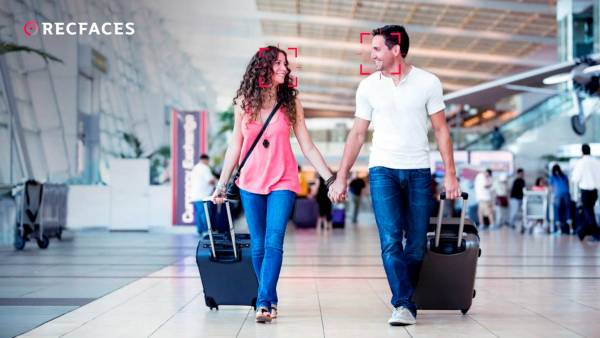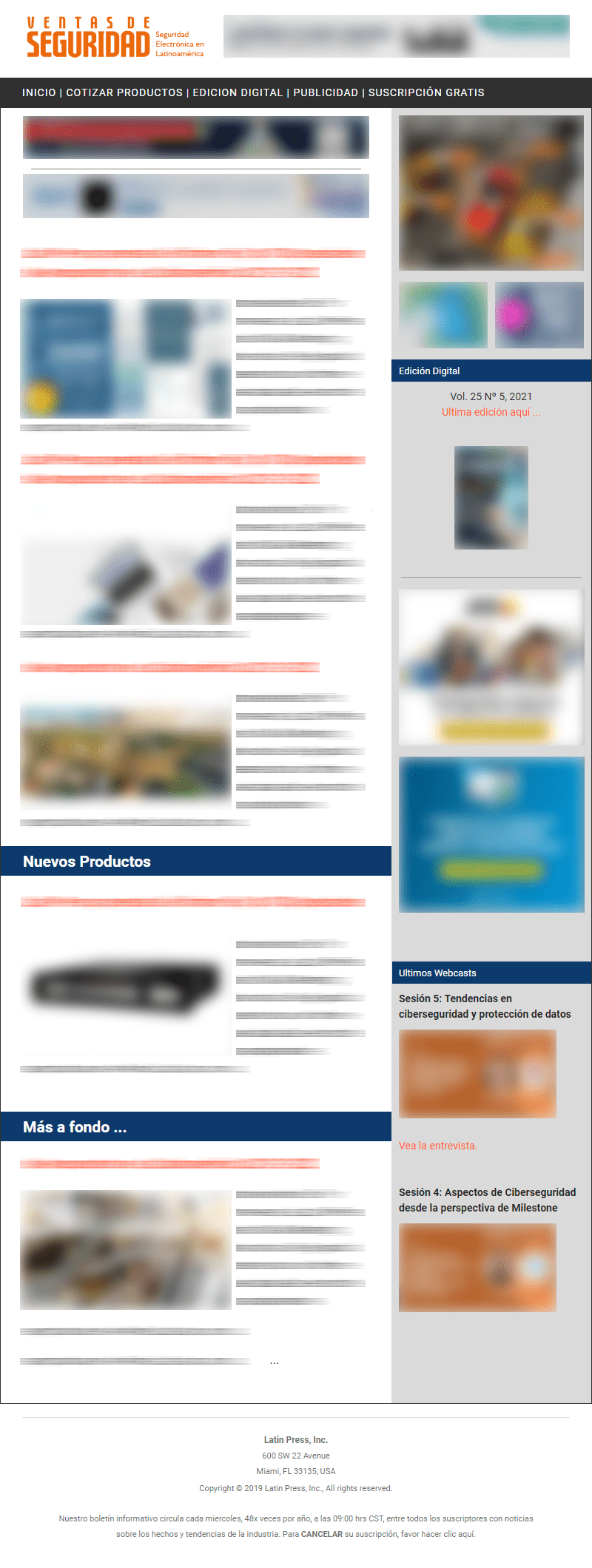ALAS, Latin American Security Association, turns 25; within the framework of the commemoration of this date our outstanding professional of this month is Alberto Álvarez, CEO of this organization.
By Security Sales
Alberto was born in Buenos Aires (Argentina) where he studied his basic training in public schools and studied some years of electronic engineering, and then opted for business administration. His professional life began in 1976 at Honeywell, in the engineering and sales area of BMS, where he spent 13 years, to later work at Johnson Controls as regional manager of South America. Around 1993, in the company of a local partner, Detcon SA founded a company dedicated to distributing and integrating building automation systems, fire and security systems. Hand in hand with this initiative he had a partnership for several years with Johnson Controls, becoming Regional Manager of Systems and Services for Argentina, Uruguay and Chile.
For 2013 he turned his life around, as he sold his company and moved to Miami (USA) where he was hired by ALAS as CEO of the association, until the present.
Alberto indicates that he was always enthusiastic about being part of associations for the development, professionalization and growth of the industry, so it is easy to understand why he became a member of ASHRAE (American Society of Heating, Refrigeration and Air Conditioning Engineers) and participated in the founding of the Argentine Chapter. In the same sense, he is a member of the board of directors of CAS (Argentine Chamber of Security), casel (Argentine Chamber of Electronic Security) and partner of NFPA and ASIS. In addition to collaborating with some social aid associations such as World Vision and Mission 500.
VDS: What are your personal and professional challenges?
Alberto Alvarez: Stay active, have new goals and objectives in the work and personal. I also live long enough to see my new baby, who just turned 16 months old, grow up and become a good man.

VDS: What analysis do you make as a professional about the importance of the relationship with employees and collaborators, technological innovation and the objectives that must be met in the market?
Alberto Alvarez: I believe that the success of companies has to do with the work culture, the good treatment of employees, contributing to their training and that they feel part of the team, regardless of the position they have. That they have the necessary tools and clear objectives, that they feel that they are part of the successes or failures of the company and, in that sense, reward them for their merits.
As for innovation at WINGS, we are always reviewing new technologies and also how to generate new business for us and our partners, while looking for ways to help this security industry grow and become professional.
VDS: What do you think are the reasons for your recognition in this market?
Alberto Alvarez: It must be because of age (to which he adds a laugh), there are many years working in the market and several countries, participating in associations and fairs, giving courses and promoting the participation of all in the development of the market. I never considered the other competing companies but colleagues with whom we could improve the industry.
VDS: What has been the evolution of the security industry in the years you have been working on it?
Alberto Alvarez: From ALAS I see all of Latin America, in that sense I think that for several years governments have realized the neglect of a primary issue for their inhabitants: security. This issue is not solved only with law enforcement or greater penalties for crimes, but with the essential help of technology, so many cities and municipalities have been implementing monitoring centers with video surveillance systems, alarm poles and tracking systems of car license plates, among others.

VDS: How do you see the future of this industry in terms of threats, demand, advances and possibilities for expansion in Latin America?
Alberto Alvarez: I never tire of saying that Latin America is the most insecure region on the planet because, although it has only 8% of the population, it is responsible for 33% of homicides globally. It has 44 of the 50 most violent and insecure cities in the world and these indicators do not improve. In addition, if we compare the number of cameras per inhabitant in the main cities of the region versus the capitals with more security technology in other regions, we are years away.
So I see a permanent growth in demand, especially for video surveillance systems, as well as cellular applications that allow exponentially expanding the number of contributors to the security system, that is, those that have an alarm button, audio upload, video and geolocation of the incident. Many cities in Latin America are using these technologies integrated into the monitoring center, 911 and police response.
The number of drones at the service of security will also grow; when 5G technology is implemented, devices will be multiplied by millions, projected to be around 75 trillion by 2025. This makes us think about cybersecurity and control of all these new IOTs.
Expert's reflection on security in Latin America
After the last question Alberto ends with a consideration: "I wonder if we are prepared to understand these technologies: Artificial Intelligence applied to security, the use of Big Data, Machine Learning, data storage and analytics in the cloud. We need much more training and professionalization of the industry. Governments, with the help of educational institutions and associations, should generate standards, good practices and certifications for products, companies, technicians and professionals; thus ensuring the quality, audit and certification of the facilities.
More than CEO a family man
Alberto is the father of three sons, two from his first marriage and one less than two years from his current second marriage and union. In this regard, he says in a jocular tone: "I always say that I have a multinational with a son in San Francisco USA, the other in London and the last one in Bogotá."
This particular Argentine, with a good mood and big smile, says he does not like much meat or football, as is traditional in his country, instead he prefers a good Malbec and tennis as a sport.
His life highlights having had a good childhood, in which he never lacked anything and was able to go out to play nonchalantly. "I went to a very good elementary school where in addition to an excellent academic training they instilled in us many values and independence."

To conclude, he describes himself honestly: "Sometimes I am too detailed and demanding, but over the years I have become more understanding of others."


























Leave your comment